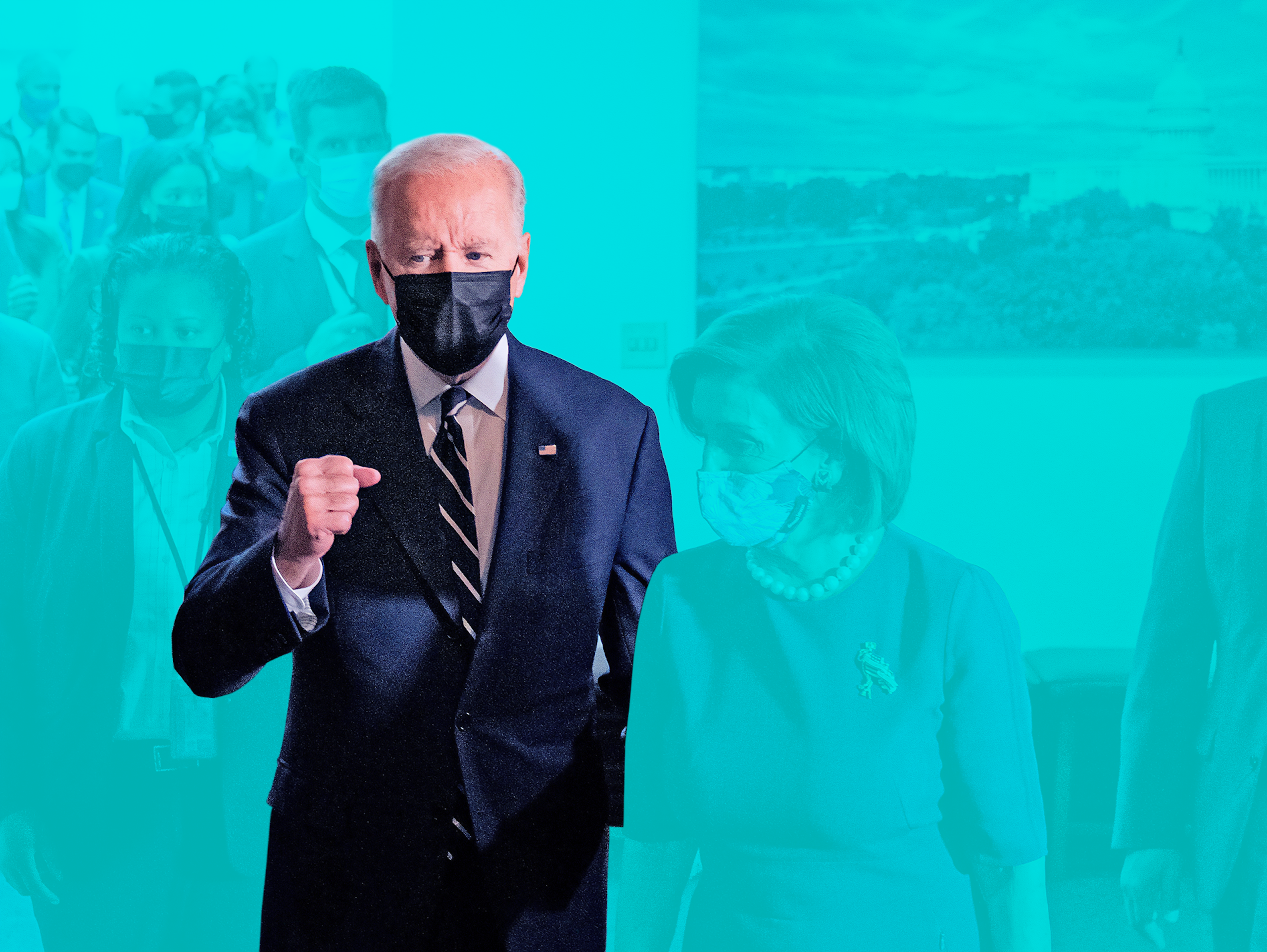
IIt was an expensive week for Joe Biden. What began as a $3.5 trillion green and social spending plan seemed to have shrunk in half by Thursday. Under pressure — Biden wanted to head to the climate summit in Glasgow with a deal in his pocket — a number of crucial Democratic senators who were previously obstructive declared their willingness to back down.
Biden’s last message before he took Air Force One to Europe came close to a plea. He called on the members of his party to support the plan because his presidency depended on it. Biden said a win was also necessary to maintain America’s position on the world stage.
While negotiations continued in Washington, I traveled through West Virginia. The state has voted Democrat since the Great Depression of the 1930s. Donald Trump was the first Republican to win impoverished, depopulated West Virginia. West Virginia still has a Democratic senator, Joe Manchin, who almost single-handedly scrapped $1.75 trillion from Biden’s plans. He found investments in costly energy sources too threatening for the coal industry in his state. The social handouts for medical care and child support would, in his opinion, have led to too much dependence on government.
West Virginia is a state with little trust in Washington, and thus it isn’t tied to a party. I heard little good about Biden. The most common complaint was about “incompetence.” In the eyes of many West Virginian voters, Biden simply isn’t accomplishing enough.
Keen on Making a Deal
The White House understands that no policies are more harmful than unpopular ones, which is why Biden is keen on making a deal, even if it will cost him. Paid child care and parental leave, for example, are gone. The United States will remain the only prosperous nation in the world where having children or caring for loved ones means putting your own income on hold. Nor will anything be done to lower the often absurd prices of medicine. Taxes on fossil fuel energy have also been scrapped.
In contrast, the $555 billion in renewable energy subsidies is the largest green investment in U.S. history. There will be free preschool, and the increased child tax credit — a measure from COVID-19 times — has been temporarily extended. As Biden travels to Europe, American politics also seem to be moving a bit closer to the continent.
On the revenue side, Biden’s plan is another transformation. The annual wealth tax — the dream of progressive Democrats — isn’t coming. However, companies with earnings that exceed $1 billion will pay at least 15% in profit taxes, even on profits made outside the United States. The IRS will receive additional funding to pursue tax evasion. A special surtax on personal incomes above $10 million is also coming, and incomes exceeding $25 million will be taxed an extra 3%. Companies will pay a 1% tax on stock buybacks moving forward.
Return of the State
Just as the investments made in climate initiatives are not enough to reach Biden’s goal of carbon dioxide neutrality by 2050, the U.S. isn’t likely to get a totally progressive tax system. But the country is changing course. Instead of pursuing less taxation, minimizing public spending and waiting until the market stabilizes, the U.S. government is playing a much more active role. The return of the state may become Biden’s biggest legacy.
Biden has yet to finalize the agreement. That puts pressure on the second half of his proposal, large-scale investment in infrastructure worth $1 trillion. A group of Democrats will only sign off on this if green and social investments also pass. Biden’s presidency will only get off the starting block when he can successfully unify his party.
The people of West Virginia are still waiting. A part of the infrastructure budget is earmarked for regions that stand to lose if America leaves fossil fuels behind, West Virginia included. I spoke with Ed Evans, a Democrat and a representative of a district with many coal mines. Never before has so much support been laid before his state, and he eagerly hopes that members of his party in Washington reach an agreement.
There’s a name for what Biden is trying to achieve: popularism. That means taking steps that may not be revolutionary, but will nonetheless make a difference in everyday lives, particularly for those with lower incomes. It seems like an obvious political strategy, but one that the United States has not tested in ages. I’m curious to see if Biden can win back West Virginia for the Democrats.

Leave a Reply
You must be logged in to post a comment.